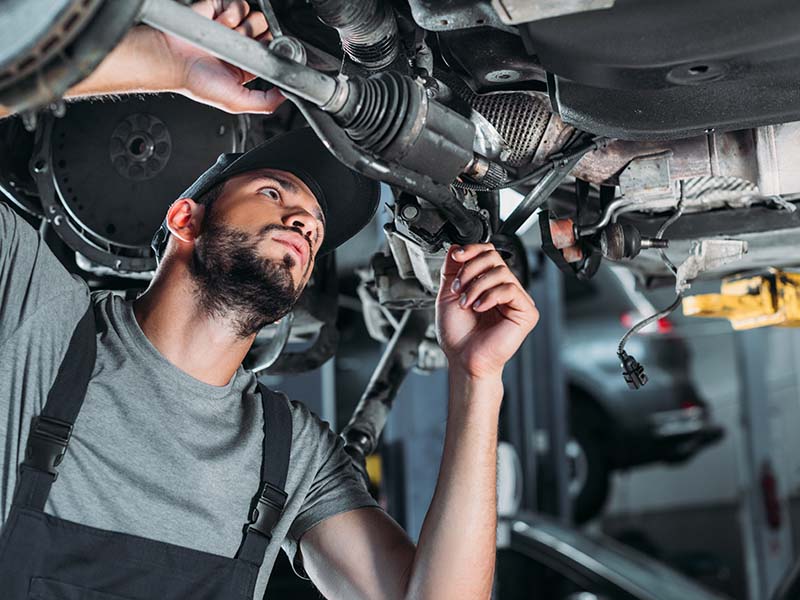All Categories
Featured

Every automobile, despite its make or model, requires normal maintenance to guarantee optimal performance and durability. Particular automobiles may have one-of-a-kind requirements based on their objective, engineering, and design. Whether you drive a day-to-day commuter, a rugged off-roader, or a deluxe car, maintaining your vehicle according to its make and design is vital to reducing repair expenses and staying clear of failures. In this write-up, we'll check out basic maintenance recommendations for popular car makes and versions, so you can maintain your vehicle running efficiently.
- Ford Cars: Concentrate On Oil and Transmission Upkeep. Ford cars, such as the Ford F-150, Mustang, and Escape, are built for efficiency, and to maintain them running at their finest, regular oil changes are crucial. Many Ford models need an oil modification every 5,000 to 7,500 miles, depending on the kind of oil made use of.
- Honda Automobiles: Prioritize Timing Belts and Suspension Checks. Honda cars and trucks, including the Honda Civic, CR-V, and Accord, are recognized for their resilience and durability. To keep them running efficiently, timing belt replacement is important, generally every 60,000 to 100,000 miles, relying on the engine. Overlooking the timing belt can lead to severe engine damage. Suspension elements also require focus, especially for older models. If you hear uncommon audios or experience a bouncy adventure, it may be time to examine your shocks and struts. Routine checks of brake pads, fluid degrees, and air filters will certainly additionally assist maintain performance and efficiency.
- Toyota Automobiles: Regular Liquid Checks and Tire Care. Be certain to monitor various other liquids as well, such as coolant, brake fluid, and power steering liquid. Toyota vehicles likewise need regular tire maintenance; check tire pressure month-to-month and rotate the tires every 6,000 to 8,000 miles to make sure even wear. If you have an older design, don't fail to remember to examine the timing belt or chain, which might require changing every 100,000 miles.

- Chevrolet Vehicles: Focus On the Exhaust System. Chevrolet automobiles, such as the Chevy Silverado, Malibu, and Equinox, are known for their adaptability. Due to the sturdy nature of some designs, particularly trucks like the Silverado, it's vital to check for rust or leakages, specifically if you live in an area that uses roadway salt in winter season. The brake system additionally requires attention, particularly if the automobile is made use of for hauling or heavy lifting.
- BMW Vehicles: High-Performance Take Care Of Durability. To maintain your BMW in leading condition, routine upkeep is important. Engine oil changes need to take place every 7,500 miles for a lot of versions, yet always refer to the proprietor's handbook for specifics. Cooling system upkeep is likewise vital, as overheating can lead to costly repair work.
- Mazda Vehicles: Timing Chain and Brake Maintenance. One maintenance task Mazda proprietors ought to maintain in mind is the timing chain, which, unlike a timing belt, generally lasts the life time of the engine. Brake upkeep is one more vital area, as brake pads and blades can use out extra rapidly on stylish versions like the Mazda MX-5 Miata. Routine brake fluid checks are crucial for preserving brake system efficiency.
- Hyundai Autos: Focus on Fluid Changes and Tire Wellness. Hyundai automobiles, such as the Hyundai Elantra, Sonata, and Santa Fe, are understood for their value and reliability. Tires are an important part of Hyundai upkeep. If you drive a Hyundai SUV like the Santa Fe, check the brake system a lot more regularly, especially if the vehicle is utilized for lugging or off-road driving.
Final thought. Each vehicle make and design has specific maintenance needs that need to be complied with to ensure the car stays effective and reliable over time. Whether it's fluid adjustments, tire rotations, or timing belt substitutes, following an appropriate maintenance routine customized to your car's brand name will help stop major repair work and expand the life expectancy of your car.
Latest Posts
Explore Affordable Auto Repairs with Montclare’s Monthly Service Specials
Published May 24, 25
1 min read
Uncover Brake Repair & More: Comprehensive Auto Care Solutions from Montclare Auto Repair
Published May 23, 25
1 min read
Shield and Improve Your Home with Weathercraft's Exterior siding Solutions
Published May 22, 25
1 min read
More
Latest Posts
Explore Affordable Auto Repairs with Montclare’s Monthly Service Specials
Published May 24, 25
1 min read
Uncover Brake Repair & More: Comprehensive Auto Care Solutions from Montclare Auto Repair
Published May 23, 25
1 min read
Shield and Improve Your Home with Weathercraft's Exterior siding Solutions
Published May 22, 25
1 min read